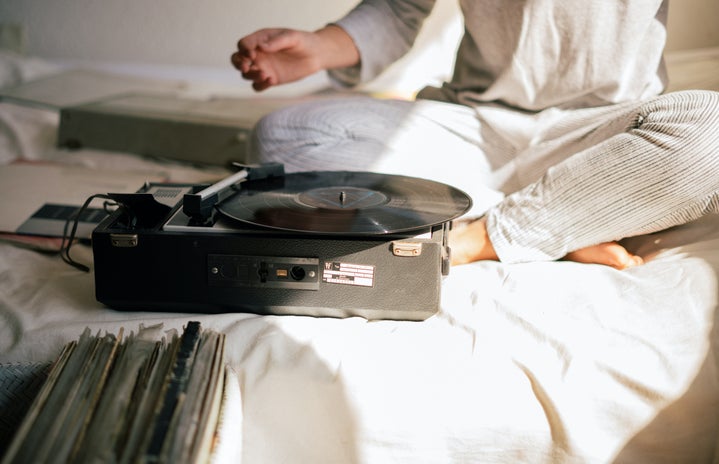As we approach finals and the end of the fall semester, it is important to find new study techniques and to improve old study habits. One of my favorite ways to study, complete assignments and do coursework is with a soundtrack—a compilation of study music and motivating tunes to help me get the work done. Listening to music while studying can help with stress and anxiety and can improve focus by acting as a motivator. Additionally, it can be used as a way to time your studying (recognizing certain points in the music or playlist and knowing that you have reached your studying limit), and some students even use music as a memorization tool by creating associations with class material and certain music using repetition. Personally, I find music to be a helpful way to improve my mood while studying and to help guide my mind. Similar to finding a study space or clearing off your desk, listening to certain genres of music and playlists helps me to dust off the corners of my mind and feel productive.
However, not all music is effective for studying. Music that contains lyrics (hello Top 40!) often leads to less effective information absorption as your brain gets overwhelmed by the two conflicting stimuli. Additionally, music that is too loud can also disrupt effective studying. Over the years, I have cultivated my study music based on what works for me, however, studying habits and routines can be very personal. Here is some of my favorite studying music.
Classical
I know it’s not everyone’s cup of tea, but classical music has been shown to help improve concentration. Besides improving focus, I think it also helps to set the tone and create a feeling of professionalism. Some of my favorite classical composers are Claude Debussy (Clair de Lune anyone?), Mozart (try his Piano Concerto No. 23), Erik Satie (Gymnopédie No.1 is beautiful) and Chopin (Nocturne Op. 9 is a classic). As far as contemporary composers are concerned, I love the music of Philip Glass (his minimalist piece “The Hours” is simply stunning).
Regardless of the composer or era, classical music can be an effective study tool (and it always makes me feel like I’m in a 19th-century dark academia library). So, turn up the Mozart or Chopin and study on!
Ambience sounds
This one is a bit weird, but I often find that listening to relaxing or soft ambience sounds can really help me stay focused. Not only can it be satisfying (thunderstorms, crackling fires and an old typewriter) but it makes me feel calmer while still staying in a productive mind space. My favorite ambience sounds are rain (isn’t studying on a rainy day so aesthetic?) and library sounds (gentle sounds of writing, typing, pages turning). If you like to have noise in the background while you work but you get distracted by louder music or lyrics, then ambience sounds can be effective in creating a calm study atmosphere. There are countless videos online of ambience-sounds compilations (some even as long as 10 hours!) so find one that works for you.
binaural beats
Okay, I’ll admit that this one is pretty strange, but listening to binaural beats helped me a lot with longer study sessions or cramming before a final exam. While the science may seem a little complicated, binaural beats are basically two tones played with slightly different frequencies at the same time that trick your brain into hearing a single beat. Ultimately, its an illusion that allows your brain to hear only one frequency, and these beats can be presented in many different frequency levels (some researchers have even found that listening to certain binaural beats can increase brain wave strength!).
While this may seem complicated and scary, I have found that listening to binaural beat compilations helps me to focus and stay motivated. Many of the videos that I have found and listened to on YouTube use alpha waves, a level of binaural beat that helps to create feelings of productivity and have been shown to reduce stress. As with anything that verges on a meditative practice, it is important to recognize that these sounds may not work for everyone and always listen at a quieter volume to prevent hearing loss.
In the end, I think that it is important to find what works for you when it comes to study music. While instrumental, classical and ambience music have been shown to improve mood and increase feelings of focus and productivity, that does not mean that these are the only options. It is important to find study habits and tricks that help you reduce stress, and so I recommend exploring different music options until you find something that helps you succeed. Good luck studying—I believe in you!


